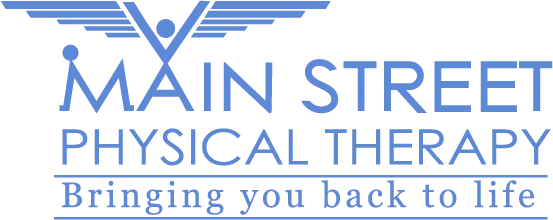How Physiotherapy Helps Manage Hypertension and High Cholesterol
Cardiovascular diseases, including hypertension (high blood pressure) and high cholesterol, are among the leading causes of mortality worldwide. These conditions not only pose significant health risks but also require comprehensive management strategies. In this blog, we delve into the role of physiotherapy in managing hypertension and high cholesterol, shedding light on its efficacy and benefits.
Understanding Hypertension
Hypertension, often referred to as high blood pressure, occurs when the force of blood against the artery walls is consistently too high. This condition can result from various factors such as genetics, lifestyle choices, and underlying health conditions. Left uncontrolled, hypertension can lead to serious complications such as heart disease, stroke, and kidney damage.
High Cholesterol: Causes and Risks
Cholesterol is a waxy substance found in the blood, essential for the body's normal functioning. However, elevated levels of LDL (low-density lipoprotein) cholesterol, often termed as "bad" cholesterol, can contribute to the buildup of plaque in the arteries, increasing the risk of heart disease and stroke. Factors such as diet, genetics, and lifestyle habits influence cholesterol levels, emphasising the importance of management and control.
Role of Physiotherapy in Managing Hypertension
Physiotherapy plays a crucial role in the management of hypertension by focusing on lifestyle modifications and exercise routines tailored to individual needs. Regular physical activity, including aerobic exercises, strength training, and flexibility exercises, helps lower blood pressure by improving heart health and circulation.
Moreover, physiotherapists educate patients on stress management techniques such as relaxation exercises and mindfulness, which contribute to overall well-being and blood pressure control.
Physiotherapy Approaches for High Cholesterol
In addressing high cholesterol levels, physiotherapy interventions primarily revolve around dietary modifications and structured exercise programs. By emphasising a heart-healthy diet rich in fruits, vegetables, whole grains, and lean proteins, physiotherapists assist patients in reducing cholesterol levels and promoting cardiovascular health. Additionally, exercise regimens focusing on cardiovascular fitness and weight management aid in lowering LDL cholesterol while increasing HDL (high-density lipoprotein) cholesterol, the "good" cholesterol.
Benefits of Cardiovascular Physical Therapy
The benefits of incorporating cardiovascular physical therapy into hypertension and high cholesterol management are manifold. By adhering to prescribed exercise programs and lifestyle modifications, patients experience a notable reduction in blood pressure readings and cholesterol levels.
Improved Heart Health
Cardiovascular physical therapy helps strengthen the heart muscle, making it more efficient at pumping blood throughout the body. This reduces the risk of heart-related complications and improves overall cardiac function.
Lower Blood Pressure
Regular exercise and physical activity, a cornerstone of cardiovascular therapy, can help lower high blood pressure levels. This reduces strain on the heart and decreases the risk of heart disease, stroke, and other cardiovascular problems.
Enhanced Circulation
Physical therapy promotes better blood flow throughout the body, ensuring that vital organs receive an adequate oxygen and nutrient supply. Improved circulation can reduce the risk of blood clots, peripheral artery disease, and other vascular complications.
Weight Management
Regular physical activity helps in maintaining a healthy weight or achieving weight loss goals. This is essential for managing cardiovascular risk factors such as obesity and metabolic syndrome, which are closely linked to heart disease and stroke.
Stress Reduction
Physical activity is known to reduce stress levels by releasing endorphins, the body's natural mood elevators. Cardiovascular physical therapy often includes stress management techniques such as relaxation exercises and mindfulness, further contributing to emotional well-being.
Improved Mental Health
Regular exercise has been shown to have positive effects on mental health, including reducing symptoms of depression, anxiety, and stress. Cardiovascular physical therapy not only benefits the heart but also supports mental well-being.
At Mainstreet PT, we specialize in providing top-notch cardiovascular physical therapy services designed to promote heart health and overall well-being. Our team of skilled therapists is dedicated to helping individuals manage conditions like hypertension and high cholesterol through personalized treatment plans tailored to their specific needs.
In conclusion, cardiovascular physical therapy emerges as a cornerstone in the comprehensive management of hypertension and high cholesterol. Through tailored exercise programs, dietary guidance, and stress management techniques, physiotherapists empower individuals to take control of their cardiovascular health and mitigate the risks associated with these prevalent conditions. As advocates for holistic well-being, Mainstreet PT reaffirms its commitment to supporting patients on their journey towards a heart-healthy lifestyle.
